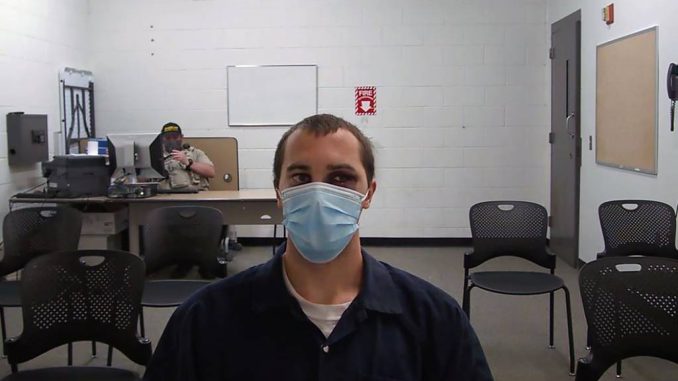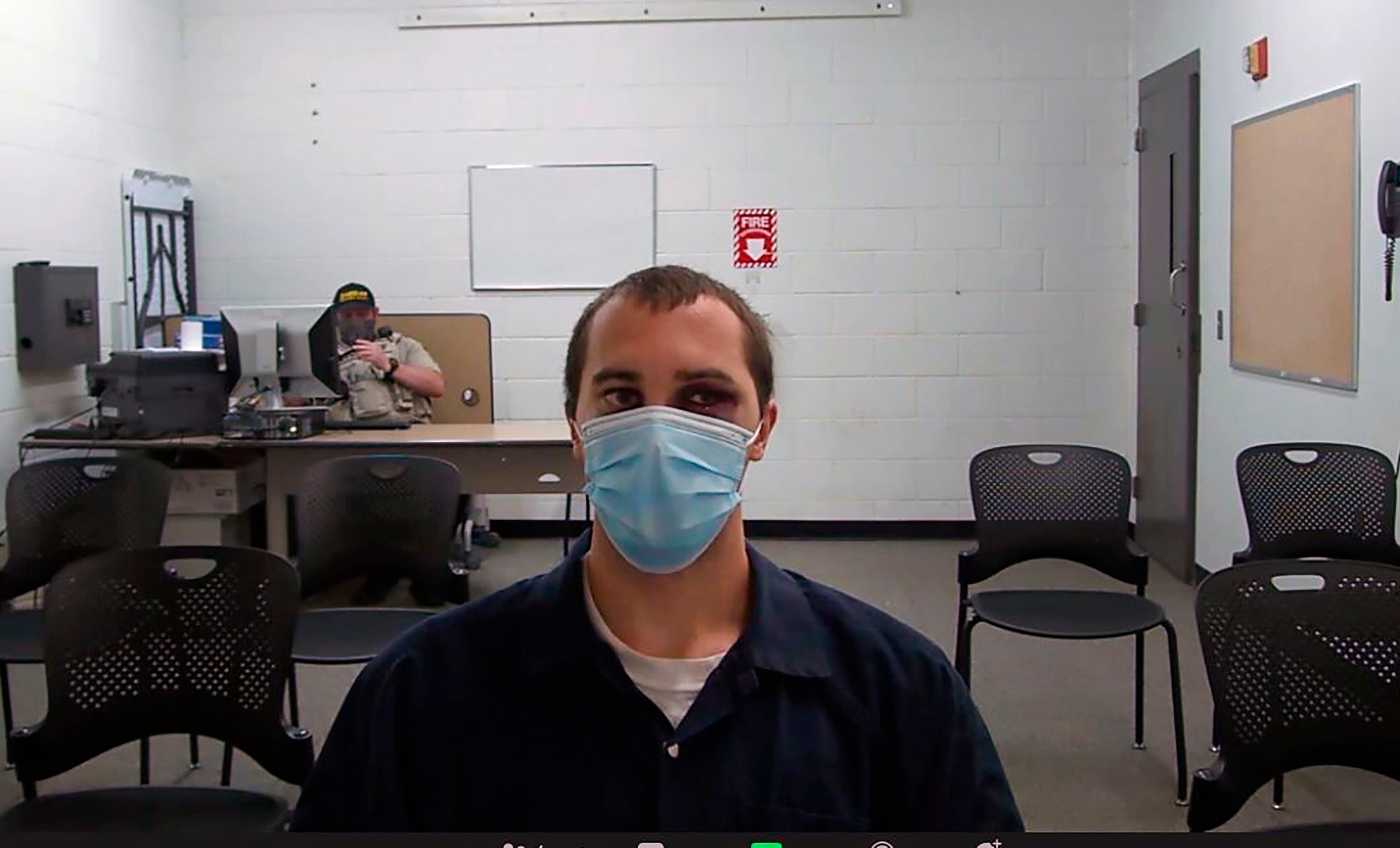

FLAGSTAFF, Ariz. (AP) — A Luke Air Force Base airman on trial on charges of kidnapping a Mennonite woman in New Mexico, fatally shooting her and dumping her body in northern Arizona, had tried unsuccessfully to cover his tracks after the January 2020 killing, a prosecutor told jurors Friday in opening statements.
Prosecutor Ammon Barker said Airman 1st Class Mark Gooch got his car professionally detailed, asked someone to hold onto his rifle and, two days after the killing, returned to the forest clearing outside Flagstaff, Arizona, where the body of 27-year-old Sasha Krause had been dumped and would be discovered several weeks later.
Though Gooch’s cell data showed he drove from metro Phoenix to a Mennonite community in Farmington, New Mexico, and then to the Flagstaff area, the prosecutor said Gooch initially deleted his location history from a different digital account — a Google account — during the time of the killing.
“In that sense, the defendant didn’t cover his tracks — he highlighted them,” Barker said, adding that Gooch later deleted all location history information from his Google account.
Gooch’s attorney Bruce Griffen told jurors that his client had no connection to Krause, had cooperated with investigators and wasn’t trying to hide anything. “The state has really no motive whatsoever to try to suggest that a peaceful, nonviolent person who didn’t know this individual would had have any reason whatsoever to abduct, let along harm,” Griffen said.
Gooch, 22, was stationed at Luke Air Force Base in metropolitan Phoenix at the time. He told investigators he was near Farmington — about a seven-hour drive — when Krause went missing because he had been seeking out Mennonite churches for the fellowship. Gooch grew up in the Mennonite faith in Wisconsin but never officially joined the church, he told investigators.
Gooch maintains that he did not kidnap or kill Krause and has pleaded not guilty to murder, kidnapping and theft charges.
Krause disappeared while going to get reading materials to prepare for an upcoming Sunday school course.
Authorities say her body was found with head injuries and in the same clothing she was wearing when she disappeared.
On the day Krause went missing, Griffen said Gooch went to Flagstaff to ski at a resort, but it was closed because of the pandemic. He then decided to drive to Farmington, realized there wasn’t going to be a church service that day and headed back to to the Phoenix area, Griffen said.
Griffen emphasized to jurors that there were no witnesses to the crimes.
Authorities said a state crime lab report showed a bullet taken from Krause’s skull was fired from a .22-caliber rifle Gooch owned. Griffen told jurors that ballistics evidence gathered in the case can’t be conclusively linked to his client’s rifle.
Gooch’s cellphone was the only one communicating with the same cell towers as Krause’s phone before hers dropped off west of Farmington, authorities said. Prosecutors aren’t sure why he targeted Krause.
Other evidence from prosecutors will include text message exchanges between Gooch and his brothers where he talked about surveilling Mennonite churches in metropolitan Phoenix and praising one for ticketing a Mennonite during a traffic stop.


Be the first to comment